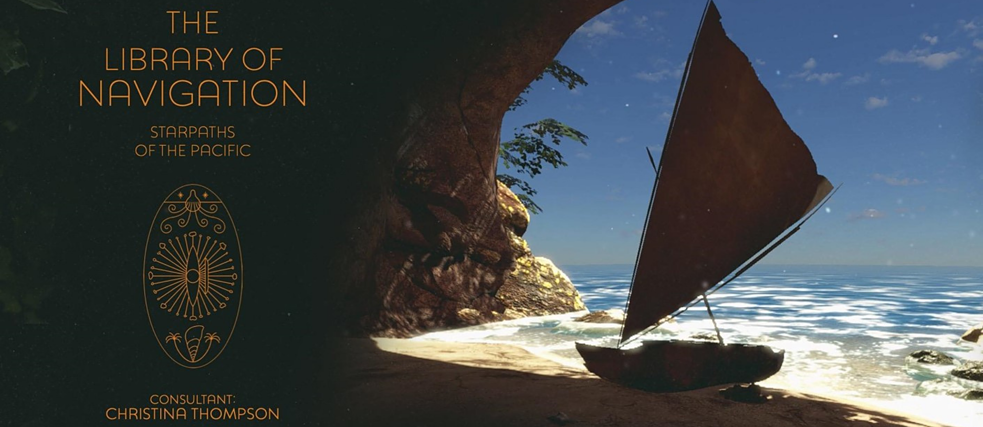Library of Navigation
Starpaths of the Pacific
The sea is as near as we come to another world.
Anne Stevenson, “North Sea off Carnoustie” (1977)
It is hard to imagine what navigation meant to your ancestors. This is partly because over half of all humans now carry in their pockets a computer that is millions of times more powerful than the one that first landed humans on the moon. With a smartphone, a person with no navigational skills can now find their way anywhere in the world with a wireless signal. At no other point in history was this imaginable. Instead, travelling over a mountain range, a desert, or a large body of water would have been the project not of a year or even a lifetime but of generations—sometimes tens of generations.
How did early humans accomplish these extraordinary migrations? The first Westerners to arrive in Polynesia struggled to understand how people without maps, compasses, writing, or metal tools could settle an area that extended over 40 million square kilometres of blue ocean. They proposed many different theories, often failing to understand that the Polynesian peoples’ achievements were not due to chance, or luck, but to their ability to store and pass on knowledge about navigation and survival through a highly developed and complex storytelling tradition, which included poems, songs, chants, dances, and more. Thanks to scientists, folklorists, and Polynesians who preserved their traditional stories, this knowledge system lives on.
Enter The Library of Navigation and listen to morning prayer and chant, in Hawaiian; sail in the outrigger canoe and learn to tell the difference between the animals in your boat and those that might guide you.
